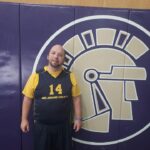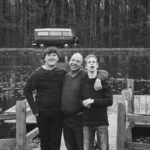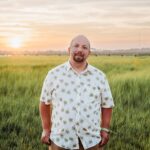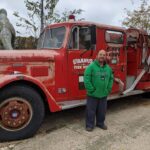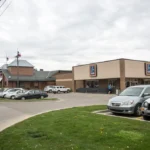In America over 13% of Americans have special needs, my oldest brother is one of those many people. He is currently in his thirties now and is filling his best life every day. However, it wasn’t easy for him as he had many challenges growing up. William’s Syndrome isn’t like autism or ADHD, it’s a genetic disease that affect’s a person blood, brain, and heart. My brother has had many surgeries on his heart and body, and he’s on medications for his blood pressure. The way William’s Syndrome affects the brain is it affects development and perspective. An example is that my brother struggles with sarcasm and lying. This has often gotten my brother, Kolson, taken advantage of and gotten him in trouble sometimes. The thing about people with special needs is that they have big hearts, and that makes them vulnerable but also makes them care deeply. This can be positive, but negative as in that they struggle to tell people how they feel because they don’t want to step on anyone’s toes. The way Kolson and many others like him are voiceless because they aren’t oppressed, especially nowadays with the coverage of benefits they get, but they are suppressed by society. Don’t get me wrong, nowadays people with special needs have so many resources that years ago would have never even been dreamed of. However, despite having resources and recognition, they still suffer from this suppression by people around them. People with special needs do struggle and they need it, but when they are giving unneeded help and forcing themselves onto the people with special needs, nothing gets done. I think about an advertisement I saw for World Down Syndrome Day where it was about a woman with Down syndrome saying how “You think I can’t, so I don’t” and that is so real. Whether it’s picking something up, writing something for them, or feeding them, if we assume they can’t, they won’t ever learn or feel the need to do it. When I interviewed my brother, I had to work around his limitations of anxiety about being recorded or knowing he was being recorded, so I got a few quotes from him to help bring his fresh, unique perspective on my big idea here.
I asked him, “Do you feel voiceless sometimes? Like, in life do you feel like you have a say or feel oppressed?” After a bit of explaining and simplifying my question, he gave me an insightful answer that made me think.
He said, “Well, I’m never voiceless because I am voiceless, it’s just that people don’t want to hear me. At least, they mean to hear me but they can be really… misguided almost by how they want to hear me. They assume what I want or mean and don’t ask questions to understand me. It isn’t that they’re being offensive but they’re just overdoing taking care of me when I don’t need to be taken care of, we just need to talk and clear things up so we quit wasting time and live life.”
“Hey Kolson, do you think people assume too much about people with Special Needs?”
I think I was starting to annoy him by asking all of these questions, but he told me….
“I think people can sometimes go out of their way to do something for people with special needs that they don’t need doing. I think if people let me and other people with special needs do more stuff, there wouldn’t be so many severe cases of special needs or so many stereotypes. We can live, I am lucky to be able to live my life, but some don’t get the chance because of the chances they have and don’t have, and the chances no one gives them.”
I was born in 2006, so I was late in my sibling’s lives, but I’ve heard many stories. How Kolson went through elementary and middle school, to then being under the threat of not graduating because the school would only give him a certificate of participation. He had taken all his classes so it was extremely unfair he not get the diploma he worked for, but rather than accept it, my parents pulled him out of that school and moved him to the out-of-state school my Dad worked at and he got his well-deserved diploma. He then entered the workforce right after high school working many different jobs like Once Upon a Child or the Salvation Army store. However, the longest job he still works at is a Production Worker position at Hillcroft, a non-profit organization built to give opportunities and resources to people with special needs and their families. He has worked at Texas Roadhouse for over five years now and is a Trainer for the employees. He is well-respected there, I got the chance to work with him at Texas Roadhouse and got to see firsthand how well he is treated and how they treat him like he doesn’t even have special needs.
My brother is also a Christian man who loves Jesus and spreads the gospel and his love as we are taught. He also loves old cars and fire trucks and traveling and driving. He is a big singer, and greeter, and finds many ways to serve in his Church. He’s also a big athlete in the Special Olympics circuit. He bowls, plays basketball, and golfs for Special Olympics. He has gone to state many times in bowling, played in the same year for many years, and has insane luck at golf. His basketball team is one of the few Special Olympic teams that doesn’t recruit and lets everybody play that wants to play. He loves hanging out with his friends whether at church, sports, or work, but he’s also a big family guy. Has a niece two nephews, and many family members who love him.
My brother is a hard worker and that’s what people see in him. When we first look past people’s special needs and their limitations and their differences and see what’s inside a person that’s when we become unbiased and that’s when everyone is equal. Kolson is a good example of how when we look past someone’s limitations and how society views him, a person with special needs can grow and learn to be efficient. A little bit of love, respect, and work can go a long way.
To close, I want to give you some Bible verses to chew on about acceptance, support, love, and equality.
Psalm 139:14, “I praise you, for I am fearfully and wonderfully made; marvelous are your works, and that my soul knows very well.”
Romans 12:10, “Devoted to one another in love. Honor one another above yourselves.”
Micah 6:8, “He has shown you, O mortal, what is good. And what does the Lord require of you? To act justly and to love mercy and to walk humbly with your God.”
To close this presentation, I am leaving some more location photos and one of Kolson’s favorite hymns, and I invite you to listen and think. Think about the lyrics, the meaning of this paper, the values of equality and love, and think about Kolson’s life in these photos. Think about your own life and times you’ve been suppressed. Then, take a step back and stop thinking, close your eyes, and let the music finish playing. Thank you for reading and I hope you got something out of this project, I know I got a deeper appreciation for my brother, and insight on life. Thank you and God bless.
Thank you so much for reading, and special thanks to Dr. Perry for giving me the chance to do this presentation and give Kolson a voice.
…by Keyton Tipple.
(all credit goes to the original owners of the property)
“Trust and Obey” by Don Moen




